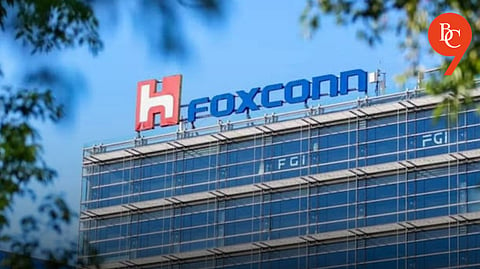

Foxconn, the world’s largest contract manufacturer and a key Apple supplier, has withdrawn more than 300 Chinese engineers and technicians from its iPhone production facilities in India. This move, which began quietly two months ago and concluded this week, marks a significant disruption to Apple’s ambitious plans to expand manufacturing in the country.
The Chinese staff who have left were not ordinary workers; they were trainers, troubleshooters, and quality assurance experts essential for ramping up Indian assembly lines to Apple’s exacting standards. Their expertise was crucial in training local teams and transferring advanced manufacturing technology, roles now left to a much smaller Taiwanese support staff. The sudden withdrawal is expected to slow the training of Indian workers, delay technology transfer, and potentially increase production costs as Apple prepares to ramp up production for the next-generation iPhone 17.
Multiple sources indicate that the withdrawal was influenced by growing geopolitical friction between China and India, as well as broader US-China tensions. Chinese authorities have reportedly pressured their nationals to leave India and have tightened restrictions on technology transfers and equipment exports to rival manufacturing hubs such as India and Vietnam. These actions are part of a strategy to prevent the migration of high-end manufacturing capabilities and technical know-how to competing economies, especially as Apple and other tech giants seek to diversify their supply chains away from China.
India has rapidly emerged as a critical manufacturing base for Apple, now accounting for nearly 20% of global iPhone production; a remarkable feat given large-scale assembly began just four years ago. Foxconn alone exported iPhones worth $3.2 billion from India between March and May 2025, with 97% destined for the US market. The company has also invested heavily in new facilities, aiming to further boost production and reduce reliance on China.
However, the loss of Chinese technical staff comes at a sensitive time. Apple’s plans to manufacture most US-bound iPhones in India by late 2026 may now face delays due to the shortage of skilled trainers and the complexity of maintaining Apple’s stringent quality standards without their expertise. While product quality may not be immediately affected, assembly line efficiency and the pace of technology adoption are likely to suffer during this transition period.
The Foxconn staff recall is not an isolated incident. Similar pressures and visa restrictions are being reported across other Chinese-owned electronics manufacturers operating in India, such as Oppo and Vivo. In addition to workforce issues, China has reportedly delayed shipments of critical manufacturing machinery and restricted the export of rare-earth magnets, further complicating India’s efforts to become a global electronics manufacturing hub.
